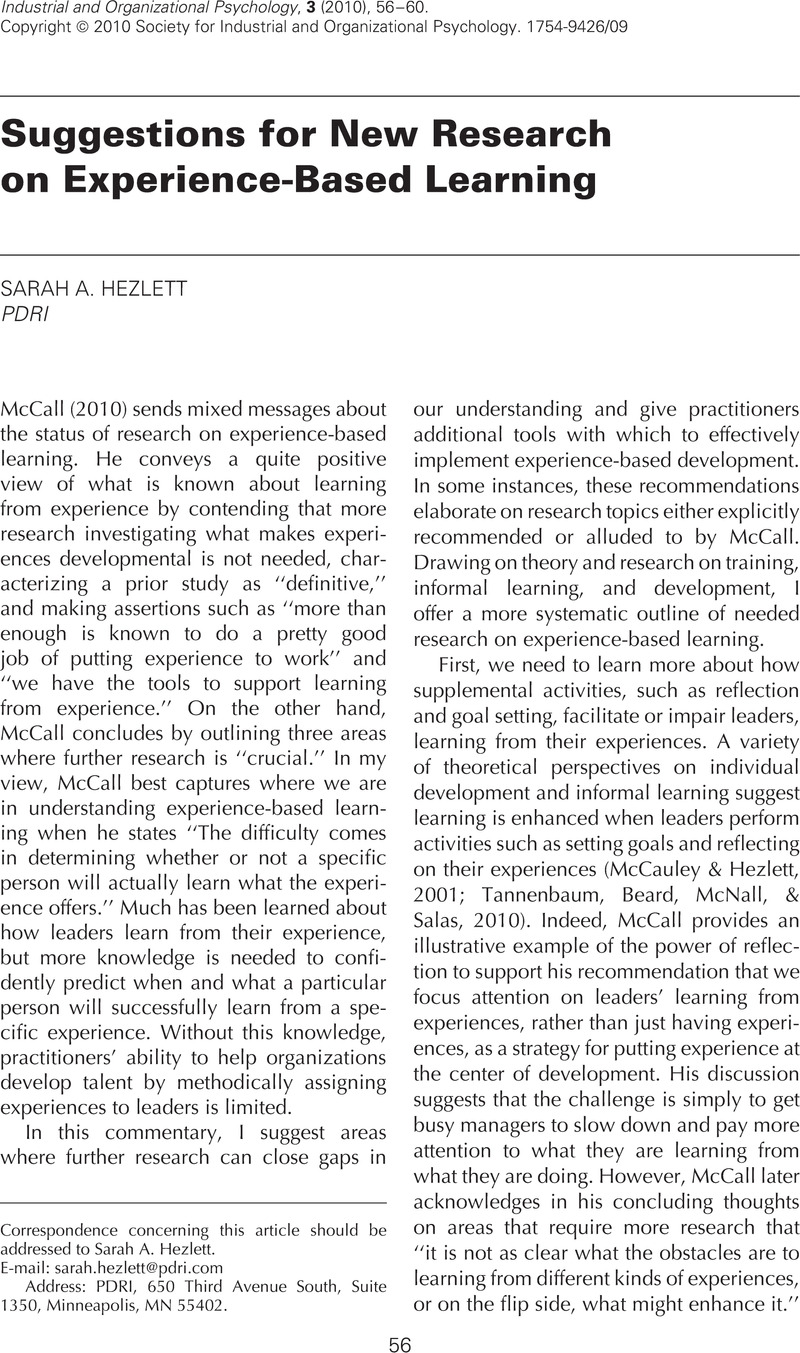Crossref Citations
This article has been cited by the following publications. This list is generated based on data provided by Crossref.
McCall, Morgan W.
2010.
Peeling the Onion: Getting Inside Experience-Based Leadership Development.
Industrial and Organizational Psychology,
Vol. 3,
Issue. 1,
p.
61.
De Meuse, Kenneth P.
Dai, Guangrong
Swisher, Victoria V.
Eichinger, Robert W.
and
Lombardo, Michael M.
2012.
Leadership Development: Exploring, Clarifying, and Expanding Our Understanding of Learning Agility.
Industrial and Organizational Psychology,
Vol. 5,
Issue. 3,
p.
280.
Hezlett, Sarah A.
2016.
Enhancing Experience-Driven Leadership Development.
Advances in Developing Human Resources,
Vol. 18,
Issue. 3,
p.
369.
Boak, George
and
Crabbe, Sarah
2019.
Experiences that develop leadership capabilities.
Leadership & Organization Development Journal,
Vol. 40,
Issue. 1,
p.
97.
Marcy, Richard T.
2023.
Reflections on gaps in public sector leadership development theory.
International Journal of Public Leadership,
Vol. 19,
Issue. 4,
p.
261.
Alam, Ashraf
and
Mohanty, Atasi
2023.
Educational technology: Exploring the convergence of technology and pedagogy through mobility, interactivity, AI, and learning tools.
Cogent Engineering,
Vol. 10,
Issue. 2,





